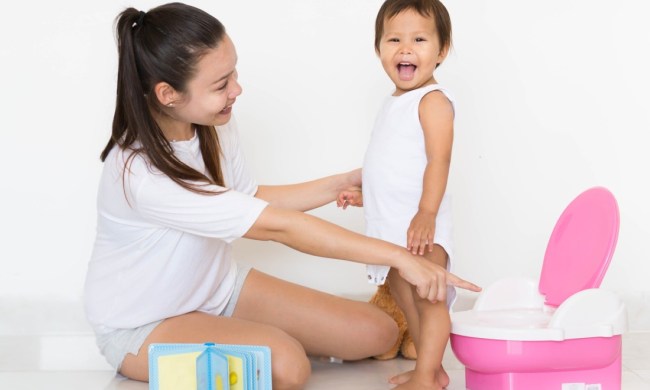When you’re expecting a baby, it’s easy to get focused on building a registry and designing a nursery. These pre-baby tasks can be fun, creative outlets while you await the arrival of your little one.
However, one of the most crucial decisions to make before the baby comes is their pediatrician. Your child’s pediatrician or the practice you choose may be a part of your baby’s life until they reach adulthood.
Asking the right questions can help ensure your child’s first pediatrician is the right one. Don’t forget to put these questions on your interview list.

Logistical questions to ask your child’s pediatrician
Doctors’ appointments are a necessary but added task and expense. Asking a few logistical questions ahead of time can reduce stress and costs.
Do you take my insurance?
Though the infections and viruses babies pick up are typically harmless, they may require medications prescribed by a doctor. Your child’s pediatrician will be your first call in non-emergency situations. You want to ensure the office takes your insurance so check-up costs are covered entirely or partially.
Do you separate sick and well patients?
You don’t want your child to get sick at the doctor’s office. Most offices will have a separate space for sick patients. This policy is especially significant when you have a newborn whose immune system is so new — they’re more susceptible to viruses that adult bodies can more readily fight off.
What are your hours?
If you work from 9 a.m. to 5 p.m., you may need to come in earlier or later than regular business hours. Also, sometimes, issues that aren’t emergencies require prompt medical attention, such as a troubling rash. You’ll need a pediatrician who can accommodate your child’s needs and your schedule.
How many doctors are in the practice, and is it possible to always see one for well visits?
Gone are the days of one-provider practices. Many offices have multiple providers. You and your child may get comfortable with one person, though. It may not be possible to see that pediatrician if your child needs prompt attention, but you want to know if it’s generally standard to see one person throughout your kid’s childhood. The familiarity can make doctors’ appointments a little easier on everyone.
How can I reach you off-hours?
Doctors’ offices aren’t open 24/7, but most providers will give you a way to reach them if you have an urgent question — such as if your child got scratched by a cat or has a rash. Make sure there’s some way to get in touch with your child’s pediatrician, as issues can arise anytime.
What is your vaccine schedule?
The American Academy of Pediatrics (AAP)-recommended vaccine schedule is tried, tested, and the best way to keep your little one safe from harmful and preventable diseases throughout their lives. Most pediatricians follow the recommended schedule. For your new arrival’s safety, make sure your child’s pediatrician is on board with the science.
Are you affiliated with the hospital where my baby will be delivered?
A pediatrician will evaluate your baby after birth. It’s not a deal-breaker if your child’s first pediatrician cannot see your child in the hospital, but it can be a nice and comforting perk for you as the parent.

Feeding questions to ask before choosing a pediatrician
In the first year, babies do a ton of eating. From milk to solids, you want to ensure your pediatrician can provide you with the appropriate resources to support your choices.
Are you lactation-friendly?
The World Health Organization (WHO) and the AAP recommend exclusive human milk feeding for six, months followed by continued breastfeeding with solids for two or more years.
Though not required, breastfeeding is important to many families. If yours fits that bill, you’ll want a pediatrician who is supportive of breastfeeding. Pediatricians only need three hours of lactation training to care for newborns. While they often flag feeding issues, such as poor weight gain, an international board-certified lactation consultant may be a better bet to help safely troubleshoot.
Some pediatricians have lactation consultants on staff who take insurance, while others refer out to providers who may require out-of-pocket payments.
Will you support me if I choose to formula feed exclusively or in combination with breastmilk?
Formula is a nutritious way to feed your child in the first year. Some parents don’t want to breastfeed and others cannot. Donor milk is one option, but not everyone has access to or wants to use it. In these cases, formula is necessary and a valid choice, despite the health organizations’ recommendations. It’s important to find a pediatrician who will support your decision to formula feed.
When and how do you recommend introducing solids?
The AAP and WHO suggest holding off until about six months before introducing solids, so it’s best if your pediatrician is up to date on this research. There are a few different ways to introduce solids. The first is getting the baby used to regular food in pureed form and with cereals. The other, baby-led weaning, involves giving the infant solids in appropriately cut shapes. Some families do a combination of both. If one method of solid introduction is important to you, make sure your child’s pediatrician supports it and can provide you with resources.
The decision as to who your child’s first pediatrician will be is one of the most important you’ll make. This provider will help you flag issues, handle your child’s immunizations, and be a valuable resource as you navigate parenthood. Logistics are important: Make sure the provider has convenient hours and takes your insurance. You also want to ensure certain parenting styles, such as feeding choices, are supported when possible. Finally, when you interview prospective pediatricians, consider going with your gut. Do you trust this person? The answer should be yes.



